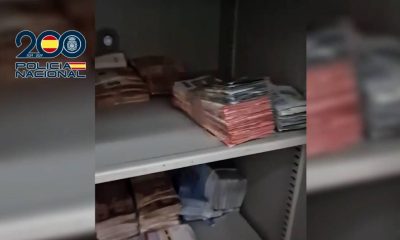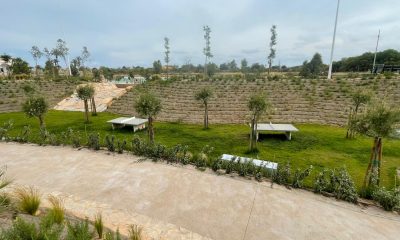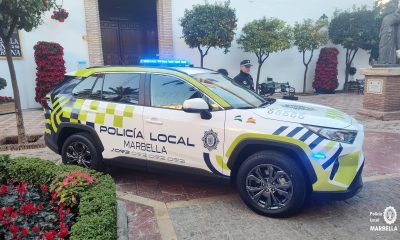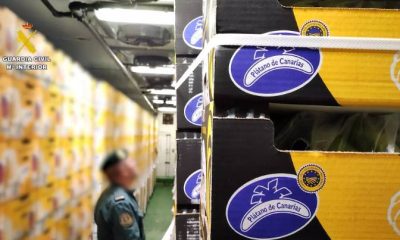Costa Blanca
Vets protest about the animal drug control regulations

The World Health Organisation estimates that animals are the source of 60% of infectious diseases that impact humans. Veterinarians have taken to the streets in concern that this number may rise as a result of the new state legislation that restrict their ability to prescribe antibiotics. In addition to shutting down the majority of the 331 veterinary clinics in the province for two hours, while some remained on call, the group organised its first protest against the new drug laws in Alicante.
They used this time to demonstrate outside the Government Subdelegation and make their concerns heard. A manifesto was read, urging Luis Planas, the Minister of Agriculture, Fisheries, and Food, to change his stance. Veterinarians and pet owners were among the more than 300 attendees.
The prevalence of leishmaniasis in Alicante is three times higher than the national average, which worries veterinarians in particular. They worry that if they don’t handle the animals properly, this zoonosis will become out of control. This human-transmittable illness is typified by sporadic fever episodes, weight loss, concurrent splenic and liver enlargement, and anaemia. In almost 90% of cases, it can be fatal if treatment is not received.
There is one dog for every four people living in Alicante
The province has a substantial pet population, with one dog for every four residents, which contributes significantly to the spread of zoonosis, according to Gonzalo Moreno del Val, head of the Alicante College of Veterinarians. Furthermore, because mosquitoes are the vector of transmission, anyone can contract leishmania, the protozoan that causes this ailment, whether or not they own a pet.
Professionals, however, are upset that the new state law on veterinary medications, which went into effect in January, restricts their prescription in these situations to allopurinol, the medication that is generally agreed to be the most suitable for treating this illness in dogs. Up until the new rule, they used the human active ingredient because there isn’t a veterinary medication in Spain that contains it.
A major issue
This possibility was eliminated by state regulations that went into force at the start of the year. “This animal disease could spread and impact more people since we are unable to adequately treat it. In addition to being a major issue for us professionals and placing us in an awkward position, it has an impact on society as a whole. Moreno del Val adds, “Spain’s uniqueness is also quite extravagant, as this treatment is used in other countries.” Production farms as well as small animal veterinarians are impacted by this ban.
“When it comes to something as crucial as prescription, we cannot treat animals based solely on our clinical judgement or scientific data. First and first, the health and well-being of animals will be impacted, followed by people, if one of our primary duties as healthcare professionals—prescription, just like for doctors—cannot be utilised to cure illnesses. Since many of these illnesses are contagious, they affect public health and are a concern for the entire community.
“My clinical judgement is not criminalised”
Thus, among the slogans that veterinarians in the Plaza de la Montañeta have displayed on their banners are “The health of animals is the health of people,” “For one health,” “We are health professionals, only our clinical judgement is valid,” “Royal Decree 666/2023 prevents us from adequately treating millions of animals,” “I am a veterinarian, my professionalism is not questioned, my clinical judgement is not criminalised,” and “Yes to public health, animals are not to be touched.”
Although they believe that the interpretation made in Spain is far more restrictive than in other European countries, the group’s dissatisfaction, which is widespread throughout the nation, stems from a rule that the Ministry of Agriculture, Fisheries, and Food initially wants to control a public health issue that veterinarians also share, such as antibiotic resistance.
These experts also confirm that pets barely account for 0.19% of the total amount of antibiotics ingested by people and animals in our nation. “Is this percentage really that bad that it puts the veterinary industry under so much strain? The group notes, “It’s odd that we have this control system for animals, but it doesn’t exist for humans; it doesn’t make sense.” According to the vets, the Ministry of Agriculture staff who created the norm lack clinical judgement “and don’t listen to us either.”
A platform for sharing all recipes
This new rule also mandates that veterinarians use an internal electronic platform called PresVet to report every prescription to the Ministry. Additionally, they are no longer permitted to prescribe drugs; instead, owners of dogs and cats must buy them from pharmacies, which frequently run out of stock because of drug shortages. Veterinarians must conduct cultures to determine the best drug, which may be life-threatening for the animal, delaying treatment.
Jordi Fontaner, an Elche veterinarian, observes a system of operation that raises the expense of therapy. “The drugstore would sell you the entire box of a medication, but we used to hand out ten tablets. The law states as much. Both the treatment and the product get more costly. To switch from one antibiotic to another, they require us to run antibiograms (cultures), which raises the expense because each one costs about 50 or 60 euros.
“It’s not an economic issue”
“It’s no longer a financial issue,” the expert adds, adding that the procedure takes longer. Our goal is to be able to care people the way we want to, not to generate money. Because an antibiogram can take up to seven days to produce benefits, treatments shouldn’t be prolonged. Immediate prescriptions are forbidden by the decree.
“We are losing our professional judgement. They forbid us from working or prescribing. We truly know what to employ in each situation, but the law restricts us, particularly when it comes to antibiotics.” Pet owners must now visit pharmacies to obtain their prescription drugs. “They don’t have that medication; they can’t acquire the pills, so they have to go to three, four, or five. In the end, we issue four or five prescriptions for each treatment since they must keep returning, whereas previously we handled it ourselves.”
Fontaner gives the example of an 80-year-old customer who visited multiple pharmacies in search of medication for her pet. “The woman actually informed me that my cat should die at the end. Since they won’t let us work, we’ll ultimately have to get around the law that is being imposed on us.”
With the new rules, “we invest a lot more time in looking for which antibiotics we can get, because we are limited by the law,” according to Tania García, a veterinarian from l’Alfàs del Pi. Perhaps writing a prescription takes twice as long as the 20-minute consultation that was originally scheduled. After that, it must be uploaded to the PresVet system. Or it takes nine days to receive it and the pharmacy doesn’t have it. Customers accuse us, therefore we have to explain, which ultimately takes a lot of time.
Reducing the 21% VAT rate on veterinary consultations as a medical profession is another demand.
Discover more from Costa Blanca Daily
Subscribe to get the latest posts sent to your email.
Costa Blanca
Orihuela will distribute 750 new bins throughout the municipality starting next month

The Orihuela City Council’s Department of Urban Solid Waste will begin distributing 758 new containers throughout the municipality in June, with the goal of increasing containerisation and encouraging selective garbage collection. This project has been awarded a total of €690,000 (including VAT).
Rocio Ortuño, Councillor for Urban Solid Waste, stated that the renovation aligns with state legislation and the Local Waste Plan, and is a significant step towards a more efficient, clean, and recycling-friendly model.
The new containers are available in both side and top loading configurations. Specifically, the delivery comprises:
Rotourban model (side loading)
-80 units for containers (yellow fixed lid)
-140 units for paper-cardboard (blue fixed lid)
-326 units for the remaining fraction (contactless lid, grey)
Rotoglobe Model (Top Loading)
-80 units for packaging
-132 units for paper-cardboard
All containers will be customised with vinyl specifying the proportion in Spanish and a heat-printed City Hall symbol. With this project, the municipality will install 432 additional recycling containers (containers, paper, and cardboard) and 326 for other fractions, thereby improving selective collection at the source and environmental compliance.
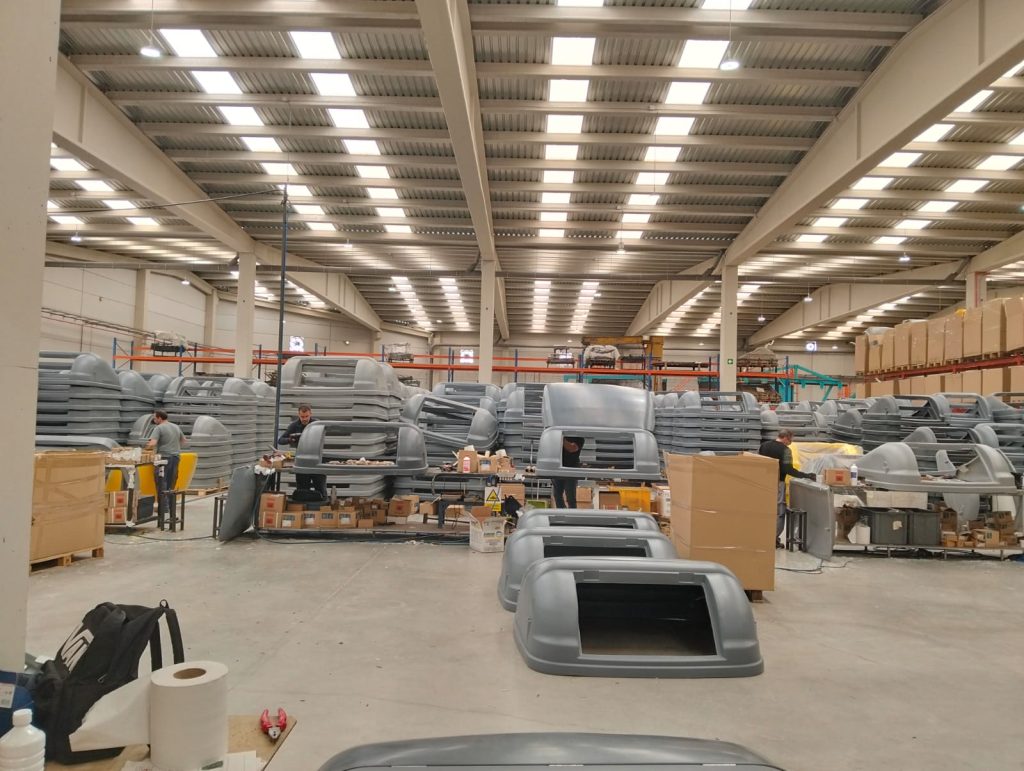
Ortuño observed that “the new 2022 Waste Law, approved by the government, has not only forced local councils to modify and increase their waste tax, but also imposes a new tax of 30 euros per tonne of waste, which in the case of Orihuela represents an annual cost of nearly one million euros.”
The councillor stated that another batch of rear-loading containers will be awarded in the coming days at a tender value of €110,000. This batch includes 877 units, which will begin arriving in late June or early July, concluding the municipality’s container fleet renewal operation.
Discover more from Costa Blanca Daily
Subscribe to get the latest posts sent to your email.
Costa Blanca
Power outages uncovered a ‘jungle’ of 800 marijuana plants in Orihuela
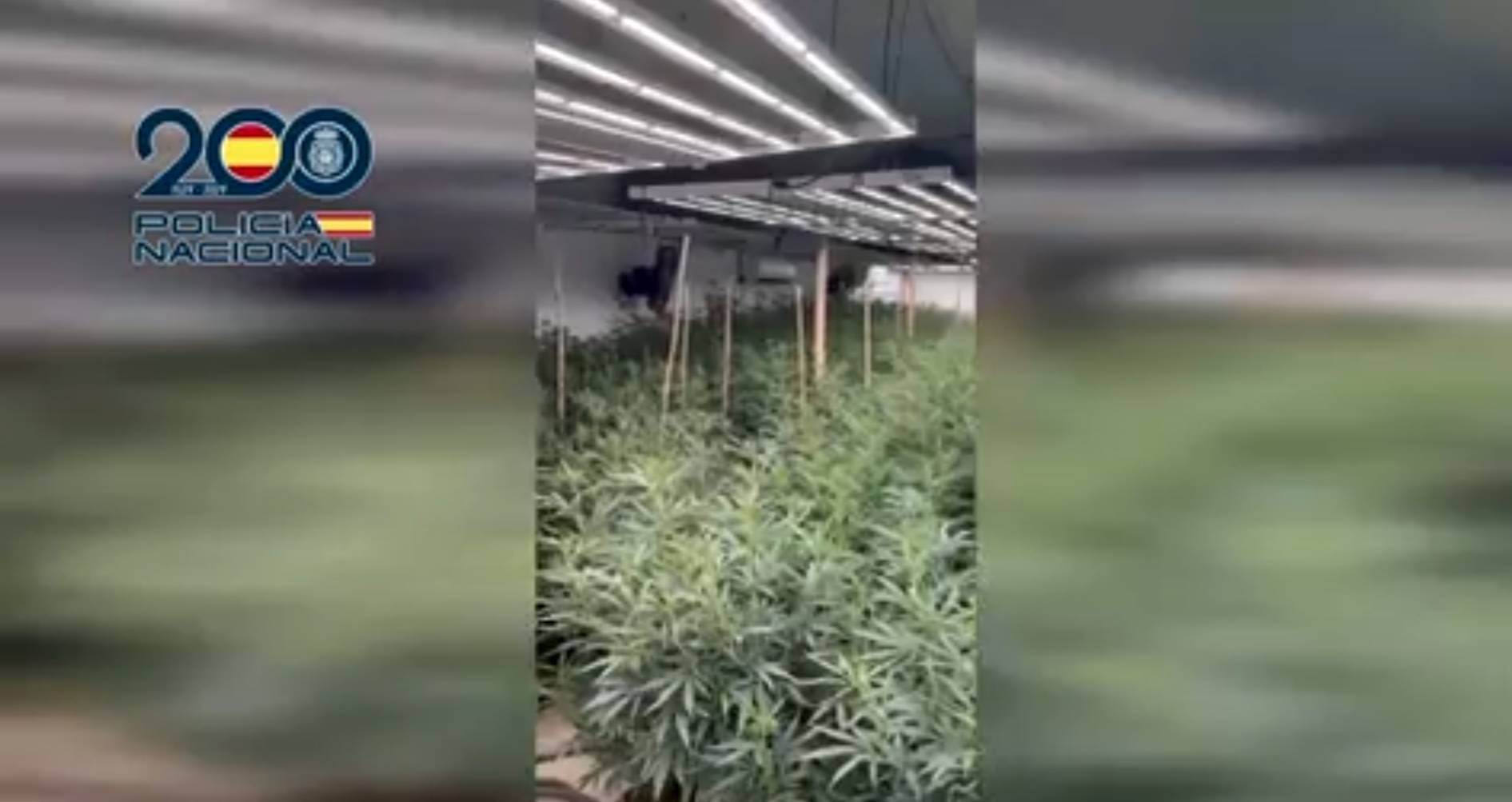
The National Police in Orihuela, Alicante, have dismantled an indoor marijuana plantation with 784 plants that was installed inside a warehouse on the town’s outskirts, and have arrested four men as alleged perpetrators of drug trafficking, document forgery, membership in a criminal group, and electricity fraud, as the illegal plantation was supplied with electricity via an illegal connection.
The inquiry began after diverse information was obtained concerning the likely existence of a facility on a property on the outskirts of the municipality of Orihuela that may be used for illegal activities, similar to indoor marijuana cultivation.
As a result of discreet surveillance of the surrounding area and other investigations, officers from the Orihuela Police Station’s Judicial Police Brigade noticed four individuals entering and exiting the warehouse. Investigators identified this conduct as common practice among the proprietors of this type of plantation.
Among these common acts, the agents saw how those involved performed counter-surveillance functions, looking in all directions to notify that no one was watching them as they entered and exited the warehouse.
Following confirmation of their suspicions, the exploitation phase of the operation began with the interception of a car driven by one of the suspects. The trunk included two green plastic bags with marijuana residue, as well as other plant-growing supplies like fertiliser.
The property under investigation was then entered and searched, resulting in the arrest of a second culprit, while the other two were held at their respective homes.
Following the arrests of people under investigation, a search of the warehouse was conducted, which was partitioned into two rooms and used for different purposes depending on the flowering stage of up to 784 cannabis sativa (marijuana) plants discovered within. Their development and culture were aided by a complete and modern lighting and ventilation system, and their electricity supply was later discovered to be obtained through an illegal connection to the power grid.
On the other hand, those arrested did not scrimp on passive technical methods of monitoring the farm, since there were cameras along the perimeter, forming a closed-circuit video surveillance system with motion sensors. This circuit covered all access angles to the plot, indicating a certain level of sophistication, resulting in increased security in the guarding and custody of the merchandise, as is typical of facilities designed by experienced individuals, with the goal of providing remote security coverage to the plantation located within.
Frequent power outages in the neighbourhood
As a result, the electricity consumption generated by this set of facilities was so high that local residents’ demonstrations revealed that they had experienced power outages on several occasions for no apparent reason, possibly due to consumption peaks caused by the illegal connection typical of this type of plantation.
Finally, another piece of evidence demonstrating the criminal group’s ability was the use of a falsified paperwork to rent the ship, which is usual among this type of organised gang; they impersonated third parties to mask their genuine identities.
The operation led to the arrest of four people suspected of drug trafficking, document forgery, electricity fraud, and membership in a criminal organisation. The plantation was demolished, and all 784 plants were seized.
Discover more from Costa Blanca Daily
Subscribe to get the latest posts sent to your email.
Costa Blanca
Torreta Florida, Torrevieja floodplain park has been inaugurated
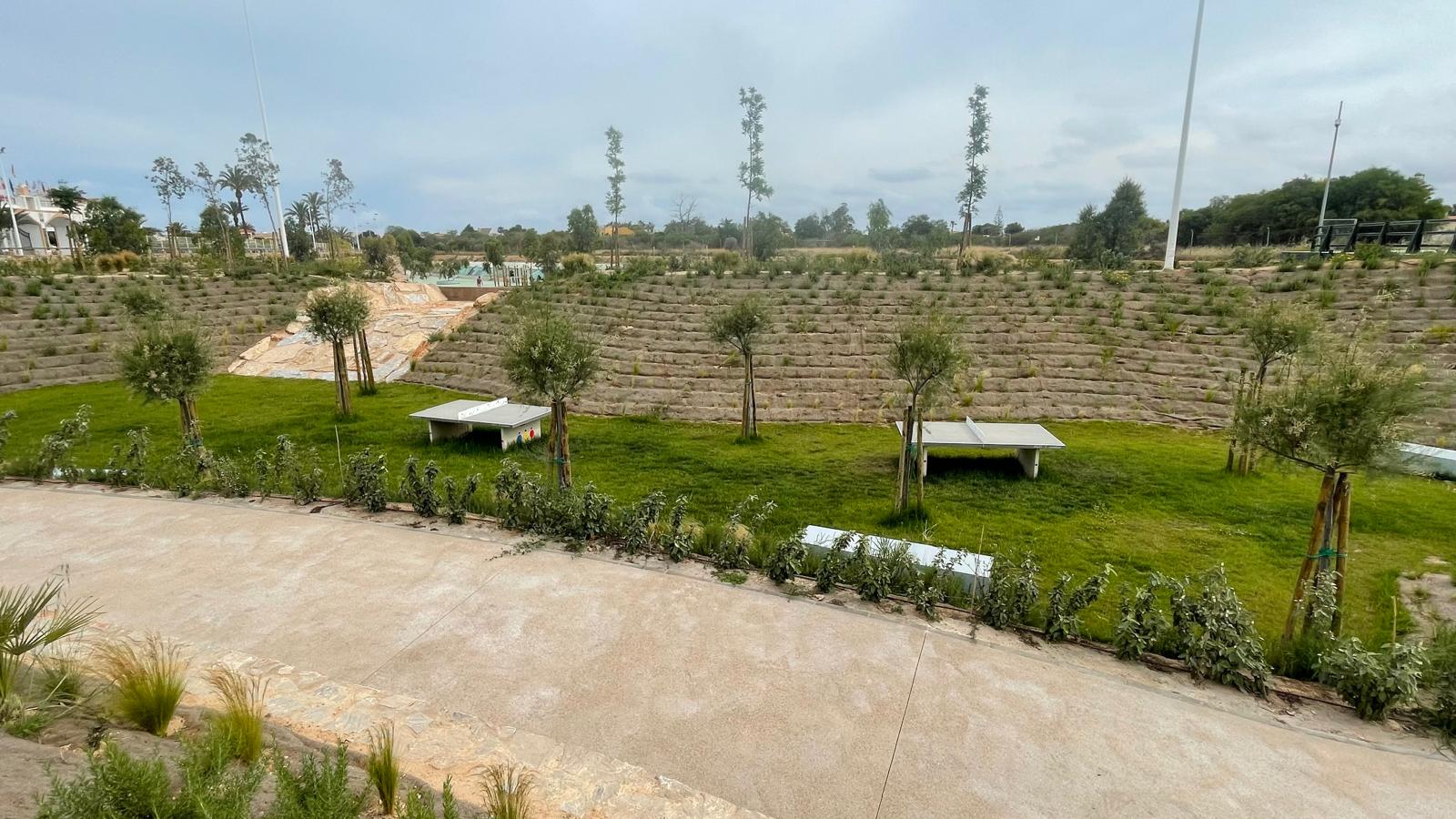
Eduardo Dolón, Mayor of Torrevieja, was joined by Sandra Sánchez, Councillor for Urban Services; Concha Sala, Councillor for Parks and Gardens; Diana Box, Councillor for Sports; Jorge Ballesta, Manager and Deputy Manager of AGAMED; and Gemma Cruz to inaugurate the new skate park in the Torrealmendros rolling pond. This facility is part of a larger initiative to develop, improve, and integrate Torreta Florida Floodplain Park into the landscape.
Claudio Pastor, the president of the Puro Skateboard Torrevieja Skating Club, and secretary Silvia Jiménez led a large contingent of members to the opening ceremony. It is worth noting that Valeria Chacón, a young Torrevieja member of this club, is the Valencian Community champion in her category and is currently competing in an Olympic sport. The club’s skating squad complimented and thanked Torrevieja City Council for developing this enormous sports facility, which was created with their input to be as effective as possible for their training sessions.
The mayor congratulated AGAMED on the opening of the sports area located on the storm pond, which required an expenditure of about 700,000 euros, and praised the Puro Skateboard Club for its support and collaboration throughout the development of the park. The park has become a popular location for practicing this sport.
This new sports facility includes a modern skate park with specialised modules such as Quarter+Flat, Hand Rail, Manual Pad+Flat, Flat Rail, and Funbox+Hubba+Spine, allowing skaters to practise numerous modalities and techniques of this urban sport.
The project comprises not only the sports facility but also a callisthenics area, new street furniture, and a thorough landscape integration plan based on planting, all of which contribute to the space’s renaturalisation and the establishment of a new green space for all citizens to enjoy.
This project is a key step towards upgrading Torrevieja’s sports and leisure facilities by providing a modern and multifunctional place for skateboarding and other outdoor activities.
Discover more from Costa Blanca Daily
Subscribe to get the latest posts sent to your email.
-
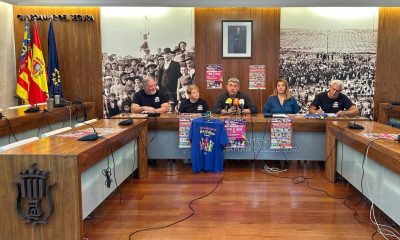
 Costa Blanca5 days ago
Costa Blanca5 days agoThe El Raso, Guardamar celebrates with a Tapas Route and concerts between May 15th and 17th
-

 Costa Blanca2 weeks ago
Costa Blanca2 weeks ago27 members of the Mara Salvatrucha gang arrested in Madrid, Barcelona, Tarragona, and Guardamar
-

 Costa Blanca6 days ago
Costa Blanca6 days agoAP7 Motorway tunnel at Pilar de la Horadada CLOSED due to fire
-
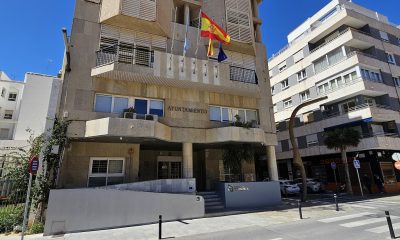
 Costa Blanca2 weeks ago
Costa Blanca2 weeks agoGreen light for drafting of park-and-ride parking project in Torrevieja
-

 News1 week ago
News1 week agoFour people arrested in Alicante province for storing and exchanging child pornography
-

 Costa Blanca5 days ago
Costa Blanca5 days agoElche joins the national protests for Palestine on May 10th
-

 Costa Blanca2 weeks ago
Costa Blanca2 weeks agoSquatter arrested after setting fire to a house in Alicante
-

 Costa Blanca2 weeks ago
Costa Blanca2 weeks agoElche prohibits the sale and consumption of sunflower seeds to protect the Martínez Valero stadium



